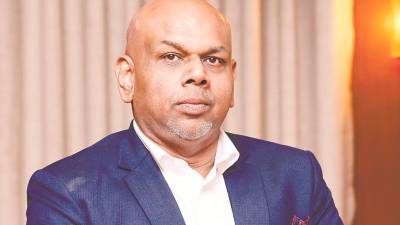PETALING JAYA: The public and private sectors must now close the gap between aspiration and impact, ensuring that all drivers, riders and workers in the gig industry see tangible improvements in their daily lives.
inDrive head of policy and regulatory affairs, Apac, Anton Ambrose said one of the Budget’s most significant shifts is the expansion of social safety nets for gig workers.
“Through the enhanced i-Saraan Plus scheme, e-hailing and p-hailing drivers can now bolster their retirement savings with government-matched contributions of up to RM600 annually – a cumulative RM6,000 across a working life.
“This is further reinforced by the Gig Workers Act 2025, backed by government co-funding of up to 70% for first-time registrants.
“A RM200 million allocation for Socso contributions signals the state’s commitment to making protection more universal,“ he said in a statement.
Anton said the inclusion of over 52,000 active e-hailing drivers under the BUDI95 targeted fuel subsidy reflects a long-overdue recognition.
He noted that subsidised fuel may ease daily costs, but lasting income resilience requires smarter support.
Fuel and maintenance are ongoing expenses, not one-offs. So government aid should come with digital tools such as real-time fuel tracking, cost forecasting, and earnings management to help drivers plan more effectively.
Anton noted that Budget 2026 falters in one area – making daily, flexible insurance truly accessible, a vital safeguard for ride-hailing drivers whose livelihoods depend on staying on the road.
Currently, only drivers tied to major e-hailing operators benefit from limited platform insurance, leaving independent or multiplatform drivers largely unprotected.
Anton said this bifurcation leaves thousands exposed to daily risks, accidents, downtime, and sudden medical expenses with no accessible safety mechanism.
“Insurance must be embedded into the work, not tied to platform privilege. Just as drivers pay platform commissions per ride, they should have the option to contribute micro-premiums per trip, unlocking short-term protection that aligns with their earning patterns.”
He said per-trip coverage and income protection should be basic rights, not luxuries. Platforms and regulators must mandate minimum insurance or create a centralised opt-in system – anything less leaves many workers one accident away from financial ruin.
“Budget 2026 must go further to ensure that no driver is left behind simply because they chose the ‘wrong’ app,“ he added.
Moving on, Anton said the government’s RM7.9 billion investment in technical and vocational education and training, including GiatMARA training for over 13,000 participants, reflects an essential shift from subsistence to sustainability.
For gig workers, he said, these training pathways offer more than just certifications. “Instead, they open doors to diversified income, improved service quality, and long-term employability.”
Coupled with a RM5.9 billion push into artificial intelligence (AI) and digital transformation, the future of Malaysia’s gig economy increasingly hinges on digital fluency.
“For ride-hailing drivers, AI-powered tools are already reshaping how they work, but technology must serve all, not just the technically savvy,“ Anton noted.
He said turning Budget 2026’s promises into reality demands strong coordination among regulators, platforms and social agencies.
This means lowering entry barriers, simplifying claims, embedding insurance into daily operations and including part-time drivers.
Fairness in the digital economy must be built and enforced – and if done right, these reforms can turn gig work from a short-term hustle into a sustainable path to economic mobility.
“As a platform committed to fairness, transparency, and inclusion, inDrive stands ready to work alongside policymakers, regulators, and civil society to shape a smarter, safer and more equitable future for all those driving Malaysia’s economy forward.
The road ahead is clear.
“What matters now is how we travel it and who gets to come along,“ Anton said.
